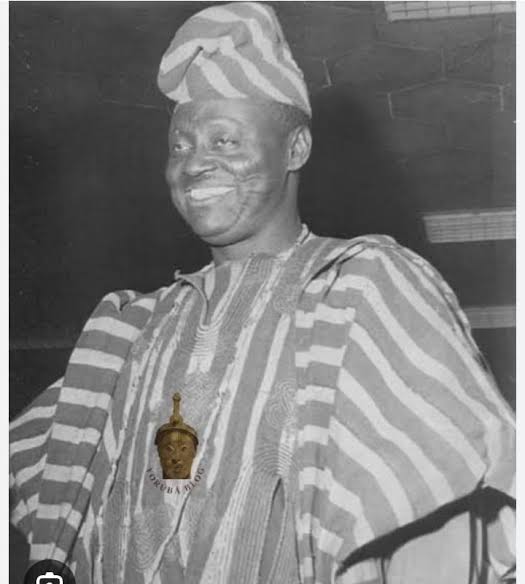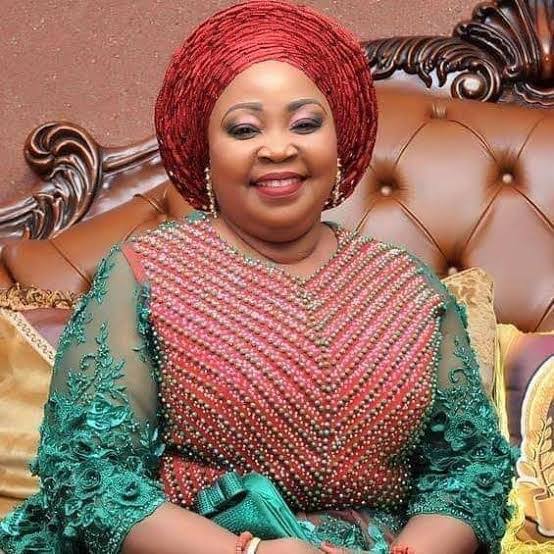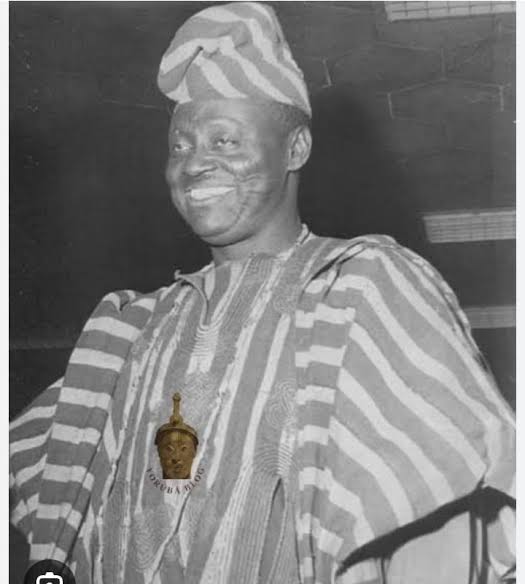The Adeleke name conjures images of wealth, power, and global influence. Across politics, music, and business, the family has left an indelible mark on Nigeria’s landscape. Yet behind every headline and every public triumph lies a quieter story—a story of women whose influence is woven through the dynasty like a hidden current, shaping destinies from the shadows.
- The Market Queen — Madam Adeboyin, Iyalode of Ede
- Nurturer of Leaders — Nnenna Esther Adeleke
- The Sister as Matriarch — Modupe Adeleke-Sanni
- Davido’s Late Mum: The Matriarch Who Shaped a Dynasty
- Matriarchy vs Patriarchy in the Adeleke Story
- New Millennium Adeleke Women (Separate Spotlight)
- Contemporary Influence and Cultural Legacy
- Conclusion: The Silent Architects
From nurturing young talents in living rooms to steering households through political and social turbulence, these women have quietly ensured that the family’s legacy endured. They are the unseen architects whose guidance, resilience, and vision have made the public achievements possible. Without them, the dynasty’s story would be incomplete—a façade of power lacking the foundation of strength and continuity.
This article uncovers their stories, tracing generations of matriarchs and modern women, showing how the Adeleke legacy has always been as much theirs as it is the men’s.
The Market Queen — Madam Adeboyin, Iyalode of Ede
Before politics, before billion-dollar businesses, before Afrobeats carried the Adeleke name to global stages, there was Madam Adeboyin. She was the mother of Chief Raji Ayoola Adeleke, the patriarch whose career as a senator in Nigeria’s Second Republic launched the dynasty into public life. But Adeboyin was far more than “mother to.” She was Iyalode of Ede, a Yoruba title reserved for the acknowledged leader of women in the community.
To call someone Iyalode was to recognize her as a merchant of influence and a political broker in her own right. In Yoruba society, market women were not mere traders; they were the economic engines of towns and custodians of family survival. By day, Adeboyin presided over stalls heavy with kola nuts, textiles, and food supplies. By night, she was a counselor, dispute-settler, and financier of family ambitions.
Her role was not symbolic. In colonial-era Osun, where men often traveled for trade or politics, women like Adeboyin ensured the family’s wealth remained stable. Oral accounts in Ede describe her as unyielding in negotiation, soft-spoken in conflict, and fiercely protective of her kin. The same grit that enabled her to rise in the marketplace would trickle down into her son, Raji Ayoola Adeleke, who would later mobilize labor unions before becoming a senator in 1979.

Through Adeboyin, we glimpse the template of Adeleke matriarchy: economic acumen, quiet influence, and resilience. She did not occupy an official government seat, but her networks, wealth, and authority over women in Ede planted the seeds for a dynasty that would later expand beyond Osun.
Nurturer of Leaders — Nnenna Esther Adeleke
If Adeboyin laid the foundation, Mrs. Nnenna Esther Adeleke built the walls that sheltered the dynasty through storms. An Igbo wife of Chief Raji Ayoola Adeleke, she became the mother of political heavyweights: Isiaka Adetunji Adeleke, Nigeria’s first civilian governor of Osun State, Ademola Adeleke, the current governor and Billionaire Adedeji Adeleke.
Life was far from easy. The mid-20th century in Nigeria was turbulent—independence, military coups, the civil war, and the fragile transition to democracy. In such times, politics was dangerous, and family survival was a full-time vocation. Esther Adeleke’s role was not captured in newspapers, but her influence was etched into the character of her children.
When Isiaka entered politics in the early 1990s, her home became the nerve center of campaign strategy. Relatives recall her calm presence amid chaos, ensuring the family remained united as political pressures mounted. Her faith, discipline, and maternal counsel enabled her sons to navigate the cutthroat world of Nigerian politics without fracturing the family core.

Esther reportedly died in 2011, six years later, in April 2017, her son Isiaka Adeleke died suddenly—an event that shook Osun politics and nearly splintered the dynasty. It was the family’s matriarchal memory, built around Esther’s resilience, that allowed them to regroup. Years later, Ademola contested in the Osun governorship race. The lessons he had absorbed from his mother—tenacity, patience, faith—proved decisive, even when his first attempt ended in defeat.
Esther was the classic Yoruba “Iya ni wura”—a mother as priceless as gold. Her legacy is not monuments or headlines, but the imprint of discipline, sacrifice, and faith on the sons she raised.

The Sister as Matriarch — Modupe Adeleke-Sanni
No discussion of Adeleke women is complete without Chief (Mrs.) Modupe Adeleke-Sanni, elder sister to billionaire Adedeji Adeleke and Governor Ademola Adeleke. Today, she is widely recognized as the de facto matriarch of the family.
Unlike her brothers, Modupe never courted public office or global celebrity. Yet her role is arguably more enduring. She is the family’s unifier, counselor, and strategist—a position acknowledged publicly when the Osun First Lady praised her as “a guiding light and firm force.”
In Yoruba culture, senior sisters often act as second mothers, especially in large families. Modupe embodies this tradition. She has reportedly mediated disputes, offered financial and emotional support, and stood as the family’s moral compass. Whether during political campaigns, family bereavements, or Davido’s meteoric rise in the music industry, her presence has been constant.
Her influence was most visible during the 2022 Osun governorship. While Ademola danced on campaign stages, it was Modupe who managed the delicate family dynamics behind the scenes. Her ability to command respect across generational lines made her indispensable. In a dynasty where wealth and fame could easily fragment loyalty, she became the thread stitching the fabric together.

For many Adeleke insiders, she is the invisible center—not famous, not elected, but essential.
Davido’s Late Mum: The Matriarch Who Shaped a Dynasty
Before Davido became a global music phenomenon, before the cameras followed him from Lagos to London, there was Dr. Veronica Imade Adeleke (1963–2003)—a woman whose quiet influence would ripple across generations. A university lecturer, philanthropist, and music lover, she cultivated her children with a combination of discipline, warmth, and vision. Her life was tragically cut short when Davido was only nine, yet the impact of her guidance continues to echo in his career and the broader Adeleke family.
Veronica was more than a mother to a superstar; she was a matriarch in the truest sense. She balanced household responsibilities, academic pursuits, and social influence in ways that allowed her husband and children to thrive. Her home became the first stage for Davido’s musical curiosity, her encouragement giving him the courage to dream big. Friends and family remember her as resilient, graceful, and fiercely protective, laying the emotional and moral foundation for the next generation.

Her death in 2003 marked a turning point for the family. Davido’s music, often raw and emotionally charged, reflects the void left by her absence. Yet through her children—especially Davido and his siblings—her values, faith, and strength live on, forming an invisible backbone of the Adeleke dynasty. In many ways, she remains the silent architect behind both the family and a global music empire.
Matriarchy vs Patriarchy in the Adeleke Story
Why have these women remained invisible in public narratives? The answer lies in Nigeria’s patriarchal media lens. Political dynasties are almost always told through the men who hold office or wealth. Yet in Yoruba tradition, matriarchy has always co-existed with patriarchy. From the legendary Efunsetan Aniwura of Ibadan to countless Iyalodes across towns, women wielded subtle but firm authority.
The Adeleke women embody this tradition. Adeboyin’s market leadership anchored the family’s economic roots. Esther’s motherhood molded governors. Modupe’s senior-sister authority steadies the dynasty today.
In reality, the Adeleke dynasty is matrilineal in resilience, even if patriarchal in headlines.
New Millennium Adeleke Women (Separate Spotlight)
The new millennium has seen a wave of Adeleke women stepping into visibility, shaping family, careers, and public perception:

Chioma Adeleke: Davido’s partner and mother of his children, Chioma has navigated fame, scrutiny, and personal challenges with resilience, becoming a public face of the Adeleke women in the celebrity era.

Sharon Adeleke-Adaji: Davido’s elder sister and entrepreneur, Sharon represents the quiet, strategic influence of Adeleke women—balancing business, philanthropy, and family continuity.

Folasade and Nike Adeleke: Cousins of Davido, who have embraced digital visibility, voiced opinions and represented the evolving public persona of Adeleke women in modern Nigeria.
Contemporary Influence and Cultural Legacy
Today, the Adeleke women continue to shape the dynasty’s trajectory. Modupe remains a cornerstone. Davido, despite the glitz of fame, often turns to family elders for grounding. Philanthropic ventures linked to the Adeleke family often carry the fingerprints of women who prefer anonymity to attention.
Their cultural legacy is equally profound. In a Nigeria where political families often collapse under the weight of rivalry, the Adeleke dynasty has remained unusually cohesive. The secret, insiders suggest, lies in the women who insist on family unity above individual ambition.
From market stalls in Ede to the corridors of Osun government, from quiet kitchens to the noise of Afrobeats concerts in London, the Adeleke women have sustained a dynasty that might otherwise have fractured.
Conclusion: The Silent Architects

When future historians write about the Adeleke dynasty, they will list the governors, the billionaire, the pop star. But beneath those names lies a subtler story—the silent architects who made the dynasty possible.
Madam Adeboyin, the Iyalode who anchored the foundation.
Nnenna Esther Adeleke, the mother who nurtured leaders.
Modupe Adeleke-Sanni, the sister who became matriarch.
And the countless wives, daughters, and nieces whose sacrifices remain unsung.
Their influence is not recorded in campaign posters or music charts, but in the survival of the dynasty itself. Without them, there is no Adeleke story.
History will remember the men by their titles, but it is the women who gave those titles meaning.














